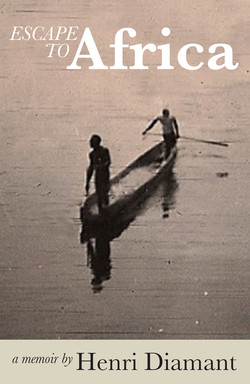Читать книгу Escape to Africa - Henri Diamant - Страница 9
На сайте Литреса книга снята с продажи.
Оглавление03. Mother’s Family
Our Mother was born in the town of Lostice, Moravia, on July 6, 1906, to Elise and Karl Hirsch. Like all towns and cities in that part of Europe, Lostice evolved around the proverbial town square that is paved over with cobblestones, and is surrounded by homes, the ever present church, several shops and a couple of taverns. The urban area dates back many centuries. I saw documents in the United States Holocaust Memorial Museum in Washington, D.C. that mention a Jewish presence in town from the early 1500’s. Jews lived all over town, without any apparent restrictions or discrimination, until 1727. Later, the Austrian Emperor decided that Jews should not live in the vicinity of a church, and the town council was forced to relocate the entire Jewish population within a single neighborhood, thus creating, essentially, a ghetto. The last synagogue, a rather plain structure, was built in the early 1800 s. It is currently under the care of the township because a new Jewish Community Association could not be formed after World War II (the final records of the old Jewish Community Association are dated 1940, the year that it was abolished by the Nazis)... Only 11 survivors came back after the war, out of some 50 deportees. Unfortunately, none were from our family.
Grandfather was a butcher. He was a large man well over six feet tall, with broad shoulders, large back and a thick neck. He was so tall that he had to hunch down to get through doorways.
I remember most vividly (I guess because of my love of animals) that he used a dogcart, pulled by two beautiful Saint Bernards, to transport batches of meat between the farm and his downtown butcher shop. Those dogs were as gentle as they were big, and we loved playing with them. I particularly liked riding them horseback fashion (whenever they let me), and playing cowboys (I never did master a lasso). Yes, they were gentle with us, but no stranger ever dared enter the yard without Grandfather’s permission.
Our grandparents did not raise cattle or cultivate fields, but the large farmyard was always full of chickens, ducks and geese, and many fruit trees grew in the back. The house, barns and other structures were clustered around the yard in a random way. At the front of the farm was a wide gate that extended from the house to the barn at the opposite side of the property. A regular-size door was cut into its right side, so that one could walk through without opening the entire gate. The house had thick walls, low ceilings with exposed wooden beams and small windows. As expected, an outhouse was located at the back of the yard, and a well with a hand pump sat next to the side of the house.
The setting of the farm was quite unique, because of a narrow canal that ran between one side of the property and the street. It was built to carry water from the river to a nearby mill, and we had to cross over a small pedestrian bridge whenever we wanted to get to the street. We could have used the dirt road on the opposite side of the farm, but that would have taken us the long way around (livestock was brought to the farm by that road). However, it was the close proximity to the river that made the surroundings so kid-friendly. This river was right around the bend of the road, and the water was visible from the back of the farmyard. We fished there whenever we came for our infrequent visits, but we rarely caught anything worth the trouble.
Grandpa used one of the outbuildings to butcher the livestock and to carry out other aspects of his trade. His sausages were the greatest ever, especially when eaten right out of the kettle. Yes, he was quite a butcher, but one with an unfortunate dietary problem. He consumed large quantities of meat three times a day, morning, noon and evening, with hardly ever anything else. Inevitably this caught up with him. He became ill and went to see a doctor who told him, in no uncertain terms, that he had to overcome his meat addiction and start eating vegetables, fruits, etc. However as expected, that did not last long. Mother told me that he tried very hard to follow the doctor’s instructions, but he just could not force himself to do it. So, he decided that he would “rather die a happy man, than lead an unhappy life”, and went right back to his old ways. In the end, it was not his wrong eating habit that did him in, it was a Nazi concentration camp.
I am unable to say much about Grandma Elise because I did not get to know her. She died when mother was a just a little girl.
Grandma Elise had two sisters, and both aunts became prominent in mother’s life after her mother passed away.
Aunt Helena married Edvard Schwarzbart, and moved to Brno where her new husband practiced veterinary medicine.
Aunt Irma married our Grandfather and became mother’s step mother. In due time, they had two daughters, our mother’s half sisters Lyzi and Greta.
I do not know exactly what happened after Grandfather remarried, except that mother left her home and moved to Brno. The only thing she ever mentioned to us was to say that Aunt Helena and Uncle Edvard raised her as their own daughter and that Brno became her new hometown. She remained with them until she married Father.
Tragically, each person mentioned in this chapter, except of course mother, was deported and perished in a concentration camp. They were all rounded up in 1942, and sent to Treblinky via Terezin.
